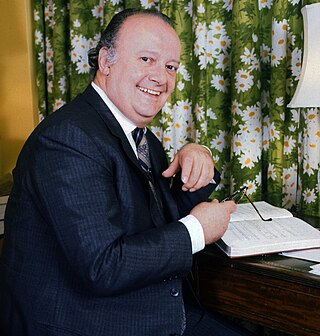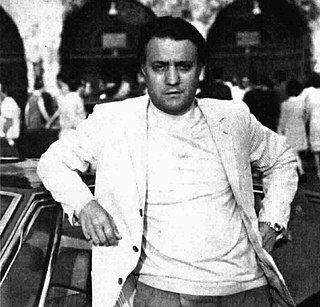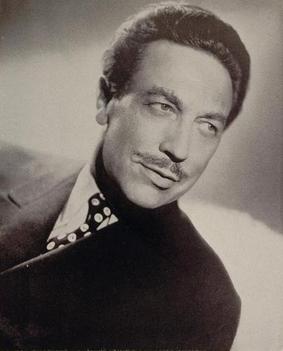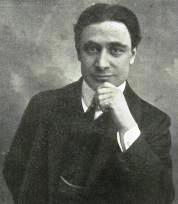Related Research Articles

Tito Gobbi was an Italian operatic baritone with an international reputation.

Gino Vanelli was an Italian operatic baritone who had an active international career from 1917 until his retirement in 1955. He made several recordings for HMV and Columbia Records, including complete recordings of the operas La boheme, Pagliacci, and Madama Butterfly.

Piero Cappuccilli was an Italian operatic baritone. Best known for his interpretations of Verdi roles, he was widely regarded as one of the finest Italian baritones of the second half of the 20th century. He was enormously admired within the field of opera for his rich and abundant voice, fine vocal technique and exceptional breath control. In the great Italian tradition he fused words and music into elegant phrases. He focused on Italian repertory, particularly the operas of Verdi, singing 17 major roles.

Giuseppe Taddei was an Italian baritone, who, during his career, performed multiple operas composed by numerous composers.
Barbara Frittoli is an Italian operatic soprano, specializing in operas by Verdi and Mozart. She has sung leading roles in opera houses throughout Europe and in the United States, such as La Scala in Milan and the Metropolitan Opera in New York. Her signature roles include Mimì in La bohème, the Countess in The Marriage of Figaro, Donna Elvira in Don Giovanni, Desdemona in Otello.
Alessandro Corbelli is an Italian baritone opera singer. One of the world's pre-eminent singers specializing in Mozart and Rossini, Corbelli has sung in many major opera houses around the world and won admiration for his elegant singing style and sharp characterizations, especially in comic roles.

Rolando Panerai was an Italian baritone, particularly associated with the Italian repertoire. He performed at La Scala in Milan, often alongside Maria Callas and Giuseppe Di Stefano. He was known for musical understanding, excellent diction and versatile acting in both drama and comic opera. Among his signature roles were Ford in Verdi's Falstaff and the title role of Puccini's Gianni Schicchi.

Giuseppe Valdengo was an Italian operatic baritone. Opera News said that, "Although his timbre lacked the innate beauty of some of his baritone contemporaries, Valdengo's performances were invariably satisfying — bold and assured in attack but scrupulously musical."

Karl Gustaf Ingvar Wixell was a Swedish baritone who had an active international career in operas and concerts from 1955 to 2003. He mostly sang roles from the Italian repertory, and, according to The New York Times, "was best known for his steady-toned, riveting portrayals of the major baritone roles of Giuseppe Verdi — among them Rigoletto, Simon Boccanegra, Amonasro in Aida, and Germont in La traviata".

Riccardo Stracciari was a leading Italian baritone. His repertoire consisted mainly of Italian operatic works, with Rossini's Figaro and Verdi's Rigoletto becoming his signature roles during a long and distinguished career which stretched from 1899 to 1944.
Rico Saccani is a conductor who served as music director / artistic adviser of the Budapest Philharmonic Orchestra between 1996 and 2005 and was principal guest conductor of the Hungarian State Opera from 1985 to 2005.

Anselmo Colzani was an Italian operatic baritone who had an international opera career from the late 1940s through 1980. He particularly excelled in the Italian repertory and was most associated with the works of Giuseppe Verdi and Giacomo Puccini. He began his career in Italy in 1947 where he quickly became a regular presence at that country's best opera houses, including La Scala. In the mid-1950s he began appearing at major opera houses throughout Europe and the United States. In 1960 he joined the roster at the Metropolitan Opera where he spent most of his time through 1978. Opera News commented that while his voice may have "lacked the sheer beauty [of other baritones], his performances had an Italianate urgency and forthright thrust that were unique, which established himself as a powerful, striking presence."
Wladimiro Ganzarolli was an Italian operatic bass-baritone, particularly associated with Mozart and Rossini roles.
Antonio Magini-Coletti was a leading Italian baritone who had a prolific career in Europe and the United States during the late 19th century and the early part of the 20th century. A versatile artist, he appeared in several opera world premieres but was particularly associated with the works of Giuseppe Verdi, Richard Wagner and the verismo composers. He was also an accomplished exponent of the bel canto repertoire.

Anthony Michaels-Moore is an English operatic baritone and the first British winner of the Luciano Pavarotti International Voice Competition. Michaels-Moore has since performed in many of the world's major opera houses across Europe, the Americas, and Asia. He has distinguished himself as a specialist in Verdi and Puccini roles, most renowned for his portrayals of Falstaff, Nabucco, Rigoletto, Simon Boccanegra, Iago in Otello, Germont in La traviata, Sharpless in Madama Butterfly, and Scarpia in Tosca. In addition to the standard repertoire, he has sung and recorded the baritone roles of some of the less-known 19th Century Italian operas, as well as the popular English art song cycles by Stanford and Vaughan Williams.

Carlo Meliciani was an Italian operatic baritone who had an active international career from the mid-1950s through the late 1970s.

Richard Bonelli was an American operatic baritone active from 1915 to the late 1970s. Although he sang predominantly on stage in both light and grand operas, he also performed at various times on radio, in concerts and films, as well as on television.

Alice Zeppilli was a French operatic soprano of Italian heritage who had an active international singing career from 1901 to 1930. The pinnacle of her career was in the United States where she enjoyed great popularity between 1906 and 1914; particularly in the cities of Chicago, New York, and Philadelphia. She was popular in Monte Carlo where she performed frequently from 1904–19 and later worked as a singing teacher after her retirement from the stage. She made only one recording, a phonograph cylinder for Columbia Records consisting of the Gavotte from Jules Massenet's Manon and Olympia's Doll Aria from Jacques Offenbach's The Tales of Hoffmann.

Giovanni Polese was an Italian operatic baritone who had an active international singing career from 1894-1928. He achieved the height of his success in the United States in the years 1908-1916 in the cities of Boston, Chicago, New York, and Philadelphia, and again from 1926-1928 in Chicago. While he sang a broad repertoire from the French, German, and Italian repertoires, he was most celebrated for his performances in the operas of Giuseppe Verdi. His voice is preserved on more than 20 recordings made by Edison Records.
Reno Andreini was an Italian operatic tenor who had an active international career from 1902 to 1924. A specialist in the Italian repertoire, he was frequently heard in the bel canto operas of Bellini, Donizetti, and Rossini, and in the verismo operas of Leoncavallo, Mascagni, and Puccini. He was notably the first singer to make a complete recording of the role of Rodolfo in Puccini's La boheme in 1917. He also recorded duets from La traviata with Maria Galvany and one duet from Massenet's Manon with Riccardo Tegani with the Gramophone Company.